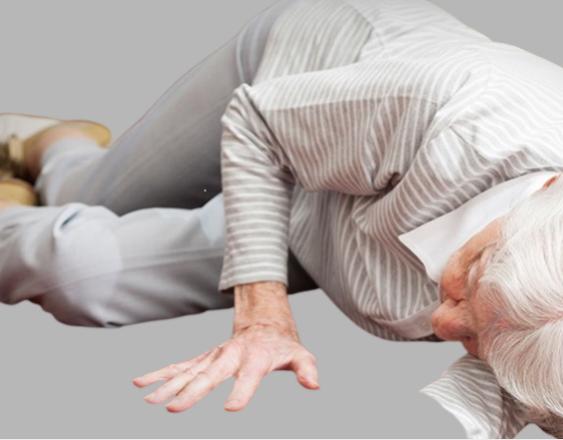Falls Clinic
What is a Falls Clinic?
It is important for patients diagnosed with a neurological condition to recognise the increased risk for falls and be able to assess and implement appropriate interventions.
Falls among the elderly are common and result in personal injury and mortality.
Our multidisciplinary team can assess and help people who have significant fears of falling or have problems with walking and balance.
Who are at Risk of Falls?
Patients aged over 65 have an unclear cause of falls and require a geriatrician assessment. If you answer yes to the question “Have you fallen or nearly fallen in the last year?" you could be at high risk.

It is recommended that a formal assessment is required so that individualised fall prevention measures could be implemented effectively.
Neurological conditions have been recognised as a risk factor for falls. Common conditions seen to increase the risk of a fall include:
- Migraine,
- Vertico,
- Stroke and
- Parkinson’s disease.
There are many ways in which physiological factors accompanying these conditions can increase the risk of falls.
What is a Falls Assessment?
A Fall Risk Assessment is used to determine a score that represents someone’s risk of falling. This is particularly relevant in cases where someone has not yet had a fall. They can still be identified ‒ through balance or fall-specific outcome measures.
To identify fall risk, both neurological and non-neurological risk factors, a Falls Assessment can include:
- Elderly Falls Screening Test (EFST),
- Timed Up and Go (TUG), and
- Tinetti Scale,
Some topics covered by a Falls Risk Assessment:
- Recent Fall History
- Medications
- Psychological
- Cognitive Status
- Vision
- Mobility
- Over-Reaches
- Impulsive Behaviours
- Activities Of Daily Living
- Environment
- Nutrition
- Continence
Who Benefits from Attending a Falls Clinic?
A Falls Assessment can provide the specific information required to develop a treatment pathway to improve the risks associated with falls.
Due to the negative impact associated with falling,
- Understand common neurological conditions and their impact on fall risk.
- Increase knowledge of strategies for preventing falls in people with neurological conditions.
Can a Neurologist Help With Balance
Where patients struggling with balance, or suffering for recurrent migraines or even minor work-related injuries, understand the health drivers behind these is important.
There are numerous health benefits of seeing a neurologist, including:
- Disease management
- Pain relief
- Illness prevention
- the Second opinion
When it comes to disease management, neurologists are highly trained doctors in autoimmune and chronic conditions such as sleep disorders, multiple sclerosis, and dementia.
A neurologist can help work-related injury management and your overall “quality of life.”
A neurologist can assist with balance issues associated with peripheral nerve disease and other neurological conditoons and relieve pain for patients with body soreness, lower back pain, neck pain, or severe headaches.
For work-related injury or frequent or severe migraines that prevent you from attending work, a neurologist can assess these symptoms and help manage the causes and avoid further falling or balance problems.
For unresolved or undiagnosed memory loss or falling issues, a second opinion can be a good idea.
Get in Touch
Once your referral is triaged, an appointment date and time will be made for you.
About Us
Neuro NSW provide multi disciplinary care and are a multi specialist practice. We provide extensive Neuro diagnostic testing and comprehensive Neurological assessment.
Get in Touch
- Mon - Thu
- -
- Fri - Sun
- Closed
- Public Holidays: Closed
- Closed from 22/12/2023 - 03/01/2024
- Emergency: Not
available
All Rights Reserved | Neuro NSW Brain & Spine Specialists






